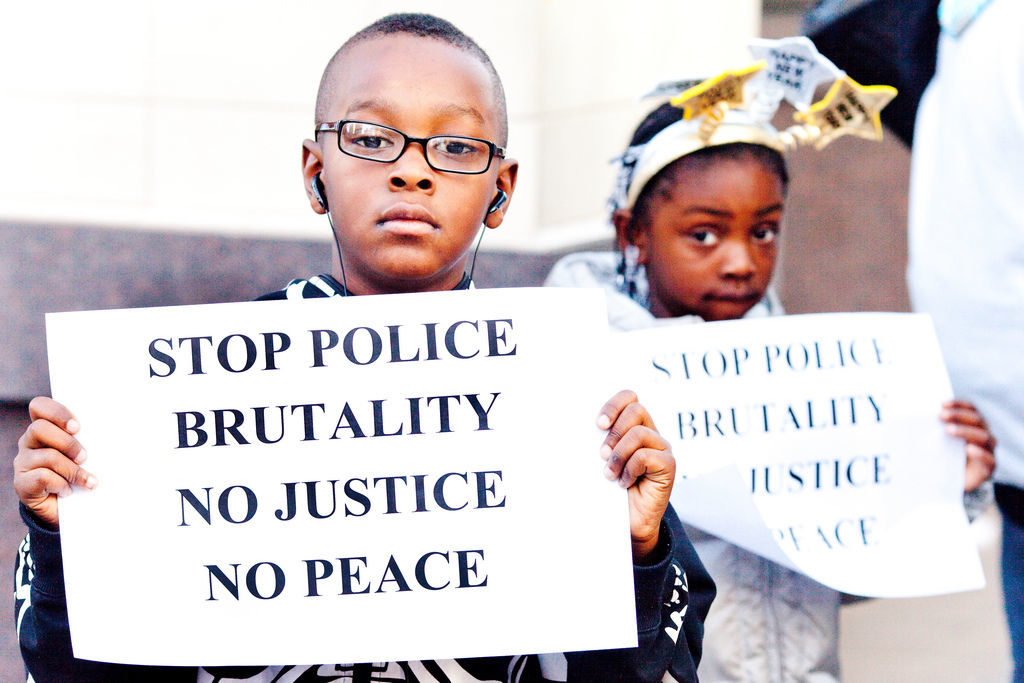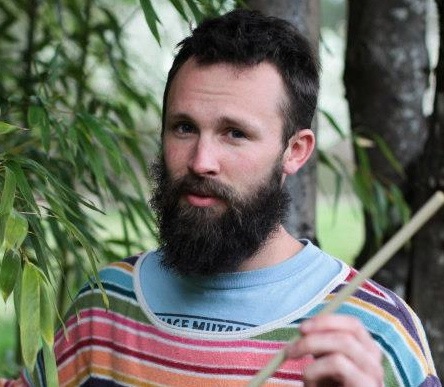A version of this post originally appeared on LikeLincoln.org. It is republished with permission.
At the Sustainable Economies Law Center (SELC), we are dedicated to creating more just and resilient local economies by meeting the legal needs of cooperatives, urban farms, community enterprises, local currencies, and other creative economic structures. And, as members of the legal community, we are increasingly exploring what a more just and resilient practice of law might look like.
In recent months, it has become undeniably clear to many Americans what has been known by certain groups for centuries — our criminal justice system is profoundly unjust. The Trayvon Martin case is just the most recent and obvious example of a justice system that criminalizes particular groups — such as African-American men, immigrants, the LGBT community, political dissidents — and elevates the rights of others — like fossil fuel companies and corporate executives.
The reasons for such legal biases are many and complex, but they might be reduced to something like this: Laws protect those who write and defend them. So, in a country where over 88 percent of lawyers are white, 70 percent are men, and 75 percent are over the age of 40, is it surprising that our legal system repeatedly fails to serve the interests of youth, women, communities of color, and other unrepresented groups? The diverse make-up of recent protests across the country express another important point — these injustices affect us all, regardless of background.

Blind. Justice. Photo credit: donsutherland1 / Foter / CC BY-NC-SA.
This systemic bias is not limited to the criminal justice system, either. Business law reflects the world of industrial-scale corporate enterprise, making it prohibitively difficult for small-scale, community-based enterprises to navigate this legal landscape. At SELC, we are pioneering many strategies for removing legal barriers to community-driven initiatives that build local wealth and autonomy. However, we’ve also realized that legal education itself may be preventing long-term systemic change in our legal system, through both exclusion and pedagogy. Currently, minorities make up less than 25 percent of law school enrollment, the average new attorney has nearly $100,000 in law school debt, and law students receive almost no practical experience serving real-world clients. Not a good recipe for a truly just and resilient law community.
Luckily, California and a handful of other states recognize an alternative path to becoming a lawyer, one that may be far more inclusive, experiential, and affordable. California’s Law Office Study Program — more commonly known as the “legal apprenticeship” — allows aspiring attorneys to take the State Bar after studying in the office of a practicing attorney or judge for 18 hours per week for four years. Not only does this path offer concrete training and experience in how to practice law and understand the needs of real communities, in some cases you might actually earn a livelihood while you learn, like my colleagues at SELC!
Check out the Apprenticeship Journals, SELC’s blog on the becoming a lawyer without going to law school.
A critical insight from the wider resilience movement is that we live in a world in transition. Institutions and ways of thinking that developed in the Industrial Age — including the institution and process of legal education — are no longer capable of adequately responding to our emerging set of social, economic, and ecological crises. I am hoping to undertake the legal apprenticeship to learn the knowledge and tools needed to serve the emerging legal needs of the resilience movement — and also to explore how a different approach to learning the law might change how law is practiced and understood.

The courtroom does not reflect the population. Photo credit: Joe Gratz / Foter / CC BY-NC.
Until very recently, I had never even considered becoming a lawyer. But through my work at SELC, I have become increasingly aware of the power of the law as a lever for social change — both through the top-down legislative process and through the bottom-up process of empowering communities, building relationships, and democratizing access to legal knowledge and services.
However, as someone committed to building community resilience and economic justice, I have asked myself: Can I serve as a lawyer without, in some ways, reproducing the same rigid system that maintains injustice and inequality in the first place?
I’ve had access to nearly every form of privilege one can have in this society. But, if I can help create space for others to access the privilege of legal knowledge and expertise by modeling the apprenticeship journey, creating systems of support and resources along the way, perhaps that is a step towards a more inclusive and resilient legal community.
If our legal system evolves through case law, imagine what that system might look like if those arguing new cases, advocating for clients, and pushing the law forward actually embodied the diversity and pluralism of our society? What if lawyers shared the same cultural traditions and experiences as the people they worked for? What if the process of learning the law directly benefited the communities where aspiring attorneys live and learn? What if lawyering was practiced in the context of mutual aid rather than market exchange or social services (which both impute a certain need in the client and thus a form of deficiency)?
The path of the apprentice may offer more compelling social benefits than simply producing another lawyer. It may be an end in itself if it is contributing to a movement that democratizes and pluralizes the practice of law, and thus helps the legal system itself adapt to the rapidly changing needs and demographics of our society.
Here are some reasons why I am committed to the apprenticeship path:
- The experiential approach to learning has more practical, immediate, and intrinsic value than traditional forms of abstract legal education;
- It has the potential to empower people from different backgrounds with the tools and knowledge needed to change one of the most fundamental — and potentially pliable — institutions underlying our society;
- It offers me an opportunity to both model and create support systems for future and current apprentices; and
- In the process of learning the law in this way, I have an opportunity to use my privilege to open new pathways for others to realize their own visions of social and economic justice.
The apprentice movement is experiencing a resurgence in a wide variety of fields precisely because it offers a more adaptive, inclusive, integrated approach to learning in a changing world. At SELC’s recent apprenticeship conversation — part of our ongoing series of teach-ins and conversations at the Resilient Communities Legal Cafe — a practicing attorney and professor noted that traditional legal education “re-structures your brain.”
If that’s so, maybe it’s time to re-structure the brains of aspiring and practicing attorneys alike to better reflect our fast-changing world.









